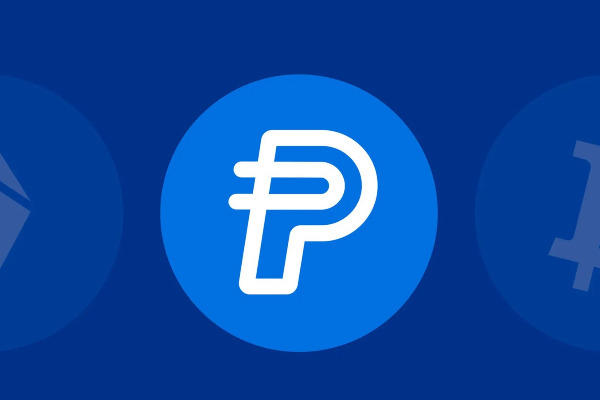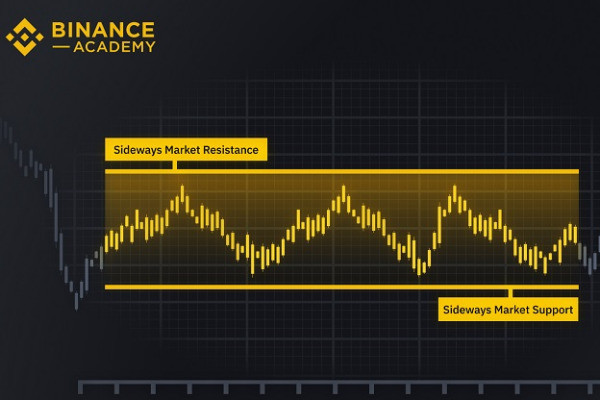Have you encountered a Telegram crypto scam? Let's dive into what it really is so you can avoid becoming a victim, especially if you're a newbie.
Telegram is not only familiar for crypto enthusiasts, but almost all blockchain-based projects and official cryptocurrency communities' channels are also on Telegram. The messaging app has undoubtedly become a special place for anyone who wants to learn about crypto or discuss the latest crypto issues. But unfortunately, it also attracts scammers.

Examples of scams that we can see on Telegram include pump-and-dumps as well as a number of crypto trading bots that promise big returns targeting novice investors. Typically, these bots are Ponzi schemes run by scammers who will eventually take the pool of money and run away.
Contents
Why Telegram?
Telegram's popularity among crypto fans began when Bitcoin.com launched its Telegram channel in September 2016 and gathered over 65,000 members. Additionally, the largest crypto exchange, Binance , briefly shifted its customer support tool to Telegram before reconsidering the move.
The crypto elites choose Telegram because of the added layer of account security and privacy. There is a 'secret chat' facility, where the confidentiality of chats between users is more guaranteed than other applications since all messages in secret chats use end-to-end encryption. On top of that, messages cannot be forwarded outside the secret chat room.
Pavel Durov, the founder of Telegram, once said that he didn't want ads in the app to interfere with communication as Telegram is committed to setting high standards for messaging technology in terms of speed, security, and adjustability.
Types of Telegram Scams
Despite the added security and privacy it enforces, Telegram has grown to be a place where crypto scammers roam free. There are countless scams on Telegram. They can be online loans, fake cryptos, and other fraudulent investments. Believe it or not, almost all crypto users on Telegram have received such offers.
In general, such scams usually target crypto beginners who are inexperienced or have just entered the crypto sphere. Are you one of the beginners? Don't worry, with a little basic knowledge and a few Telegram settings changes, you can easily avoid those scams.
1. Fake Telegram Groups
One of the most successful and dangerous scams on Telegram is fake groups. The way this scam works involves a group of imitators that are very similar to the original group so that at a glance it will be difficult to distinguish the original from the copycat. These groups can deliver what appear to be professional messages but later would ask you to invest in their fixed return investment programs.
The perpetrators of the scam often manually invite members from the original group, making it difficult to tell the difference. An example of a fake group scam that occurred recently took advantage of the popular Reddit group, WallstreetBets.
The growing popularity of the WallStreetBets crypto community has prompted some bad guys to benefit from their name. A Telegram group disguised as WSB's acquaintances took away a digital bag containing users' coins. Fraudsters behind the group managed to steal more than 3,400 Binance Coins, equivalent to 2 million US Dollars.
While the official WSB moderators have repeatedly warned about scams posing as mods to trick their members, there are still many victims who fall for the scheme.
Just so you know, fake crypto group scams on Telegram are easy to avoid. Just go into your Telegram app and change the settings for who can invite you in "My Contacts".

Also, never click links outside of official sources, and make sure that the links or groups you follow are legit.
2. The Copycat Admin
If you join a Telegram community, you must be familiar with copycat admin scams.
These impersonators usually operate by targeting members who post questions or ask for help in the group. The scammer will immediately send a direct message by pretending to help you, posing as a staff or admin. In the end, the fake admin will tell you to send a private key or seed phrase or urge you to click on a certain link. Sounds scary, right?
When you try to click on their profile, it's only natural that there are many people who are fooled because their bio is written almost identical to the official admin. They usually choose a username that looks similar at first glance, such as C0inMarketCap instead of CoinMarketCap or adding an @ symbol or official label to convince people.
If you ever get contacted by an admin, copy their name and search within the group to see the chats they've posted. If you don't find any posts from that account, it means it's a dummy admin.
Whatever the case, never give out your private key, seed phrase, or other personal information via direct message or any other medium. Anyone who asks for detailed information about your crypto savings, either directly or indirectly, is almost certainly a fraud.
3. Pump-and-Dump Crypto Groups
As crypto's popularity increases, so do the crypto trading business. This phenomenon is abused by bad people to build crypto pump-and-dump groups.
Telegram is the preferred platform for cryptocurrency profiteers who use it to prey on amateur investors, often through pump-and-dumps activity. As one of the oldest crypto fraud methods, pump groups generally use Telegram to coordinate crypto price manipulation.
The goal of most pump groups is to provide insider insight. Investors will take advantage of the information and buy a cryptocurrency in the hope that it will increase in price to make plentiful profits. They also charge an expensive membership fee plus send a DM every time there are profitable pump signals.
However, behind it all, the prime mission of the group is to bring in money from the community. The scammer will buy a large number of coins before announcing it to the group members. Impulsively, people will buy in large quantities until the coin price increase. After the price reaches a certain level, pump groups then open a short position (sell) by exiting the market, causing the price to fall.
You can find people like this masquerading as "signal groups" and claiming to provide inside information about the crypto market.
Be aware that most crypto pump-and-dump groups are scams. At first, they look like general crypto signals that give details regarding coin entry price and target price. Yet, the data can actually be harmful to you.
The best way to not get tempted by this group is to look at the historical background of the coin. Find out the tokenomics and the team behind the project. When your insight becomes clearer, you will understand whether the group's predictions are justified or just inflated by the pump's scheme.
Pumps and dumps will try to force and promote a sense of urgency in you to rush into buying coins. If you have FOMO tendencies, then you definitely an easy target for them. Newbies particularly send crypto to suspicious wallets and never get them back.
If one day you see a group of people promoting or finding an altcoin that is suddenly become the talk of the town, then be careful as you may be dealing with a pump-and-dump case.
Bottom line, don't easily trust doubtful signal provider groups.
What's the Authority has Done so Far?
Seeing the increasing cases of frauds in cryptocurrency, the authorities certainly do not stand idly by. Recently, ASIC (Australian Securities and Investments Commission) carried out the eviction of a pump-and-dump group on Telegram.

Initially, a Telegram account called ASIC sent a warning message to the "ASX Pump Organization" group that financial regulators were monitoring their activities. Of course, the members of this group did not listen to the warning because they thought it was a sham. Finally, ASIC went a step further by announcing it to the media.
EndNote
It has been more than a decade since the cryptocurrency was created, but ten years is still relatively short to explore all of the market's potentials, both from good and bad sides. Regrettably, when it comes to the downside, millions of cryptocurrency investors have been scammed in large numbers. In 2018 alone, losses due to cryptocurrency-related crimes reached $1.7 billion.
Hunting down and tracing stolen digital money is a hard task. Therefore, once your digital wallet is hacked, it is almost impossible to get your money back. Even popular coins like Bitcoin manage to allure scammers, so you really need to be always on your guard.
Criminals are very experienced at scheming crypto fraud techniques, ranging from using ancient tactics to utilizing the latest technology like Telegram. For that reason, always be alert that you can be prey for these scammers lurking in the messaging app. The abovementioned tips can be a practical guide to prepare you for the risks of being a cryptocurrency enthusiast who actively uses Telegram.

 Dedicated FREE FOREX VPS
Dedicated FREE FOREX VPS Free FOREX Virtual Private Server
Free FOREX Virtual Private Server MT4 Demo Contest, Get $500
MT4 Demo Contest, Get $500 Sign Up for an Account, Claim 60% Deposit Bonus
Sign Up for an Account, Claim 60% Deposit Bonus Free MT4/MT5 VPS 2024
Free MT4/MT5 VPS 2024 Send E-mail and Get Free Merchandise
Send E-mail and Get Free Merchandise $1K Refer a Friend Bonus for Pepperstone Pro clients
$1K Refer a Friend Bonus for Pepperstone Pro clients Maximize Your Earnings with 100% Deposit bonus
Maximize Your Earnings with 100% Deposit bonus Trade to Win, $5,000 Monthly Demo Contest
Trade to Win, $5,000 Monthly Demo Contest Claim 30% + 15% Deposit Bonus from LiteFinance
Claim 30% + 15% Deposit Bonus from LiteFinance






 Bitcoin
Bitcoin Ethereum
Ethereum Tether
Tether BNB
BNB Solana
Solana USDC
USDC XRP
XRP Dogecoin
Dogecoin Toncoin
Toncoin Cardano
Cardano
1 Comment
Nadaya
Jan 10 2023